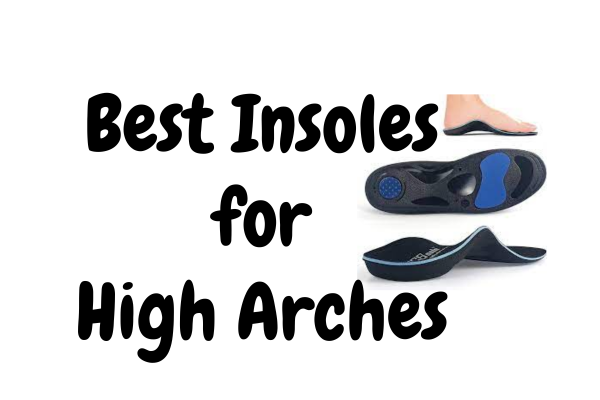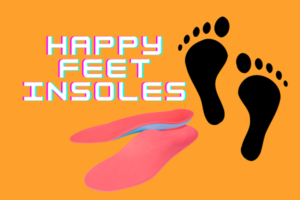Finding the right footwear can be challenging, but fear not! In this blog post, we’ll explore the world of insoles specifically designed for Best Insoles for High Arches
What are Best Insoles for High Arches
High arches, also known as pes cavus, are a common foot condition where the arches of the feet are significantly raised. If you’ve ever felt discomfort or pain due to your high arches, you’re not alone.
Understanding the Insoles for High Arches
What Are High Arches?
High arches occur when the natural curve of the foot is exaggerated. Unlike flat feet, where the arches collapse, high arches create a more rigid structure. People with high arches often experience issues such as:
- Foot Pain: The pressure on the ball and heel of the foot can lead to pain.
- Instability: High arches may cause instability during walking or running.
- Discomfort: Finding comfortable shoes becomes a quest.

Importance of Insoles for High Arches
Why Do You Need Insoles?
Insoles, also called orthotic inserts, play a crucial role in supporting your feet. Here’s why they matter:
- Arch Support: Insoles provide targeted support to the arches, promoting proper alignment.
- Cushioning: They absorb shock, reducing impact on your feet.
- Stability: Well-designed insoles enhance stability and prevent overpronation.
- Comfort: Imagine walking on clouds—the right insoles offer that comfort.
Criteria for Choosing Insoles
What to Look for in High Arch Insoles
When selecting insoles, consider the following factors:
Arch Support:
- Opt for insoles with contoured arches that match your foot shape.
- Customizable arch heights, like those in the Tread Labs Stride Insole, ensure a perfect fit.
Cushioning:
- Look for insoles with adequate cushioning. The Sof Sole Men’s High Arch strikes a balance between support and comfort.
Materials:
- Gel, foam, or hybrid materials—all have their merits. Choose what suits you best.
Durability:
- Insoles should withstand daily wear. Consider longevity.
Fit:
- Proper fit matters.Insoles should fit snugly inside your shoes.
Breathability:
- Breathable materials prevent sweaty feet.
Top Insoles for High Arches
Our Recommendations
Tread Labs Stride Insole:
- Customizable arch heights for tailored support.
- Medical-grade quality ensures durability.
Sof Sole Men’s High Arch:
- Strikes a balance between comfort and support.
- Ideal for athletic shoes.
Superfeet Green Heritage Insoles:
- High-density foam and stabilizer cap control pronation.
- Trusted by many athletes.
- Remember, these insoles aren’t just for athletes; they benefit anyone with high arches.
User Reviews and Experiences
Real-Life Stories
- Sarah: “The Tread Technologies orthotics have revolutionized my everyday walks. “No longer foot pain!”
- Mark: “Superfeet Green saved my hiking trips. Stable and comfortable!”
Tips for Using Insoles
Getting the Most Out of Your Insoles
- Proper Insertion:
- Place the insoles correctly inside your shoes.
- Follow the manufacturer’s instructions.
Gradual Transition:
- If new to insoles, ease into them gradually
How do I know if I have high arches?
To see if you have high arches, stand on a large sheet of paper with moist feet. Allow your feet’s wetness to soak into the paper, then remove them. If you have a high arch, the imprint left on the paper will be of only the front and heel of your foot with nothing in between.
Additionally, your healthcare provider may use some additional tools to evaluate your arches, including:
- Family Health History: Understanding your family’s health history can provide insights into whether high arches run in your family.
- Physical Examination: Your doctor will examine your feet, looking for signs of high arches.
- Review of Walking Pattern and Shoe Wear: Observing how you walk and the wear patterns on your shoes can reveal clues about your arches.
- X-ray: X-rays can show the bone structure of your feet.
- Electromyography (EMG testing): This test detects electrical activity in the muscles.
- Nerve Conduction Velocity (NCV): NCV assesses nerve function in your feet.
Remember that high arches can cause various problems, such as plantar fasciitis (inflammation of the plantar fascia) and metatarsalgia (pain in the ball of the foot). If you suspect high arches or experience foot discomfort, consult a healthcare professional for proper evaluation and guidance
Conclusion
Choosing the right insoles for high arches is essential for your foot health. Explore the options, read reviews, and prioritize comfort. Your feet will thank you!
Remember, this blog post is a guide, not medical advice. Consult a podiatrist for personalized recommendations.
